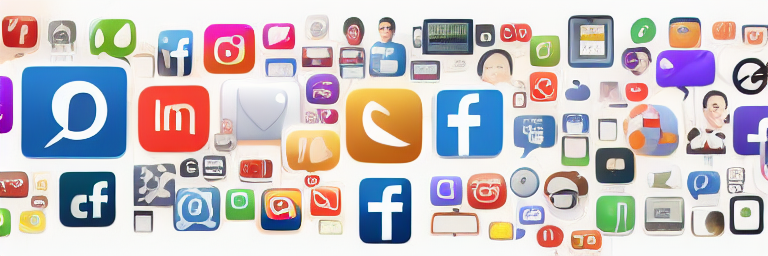Social Media Marketing
Social media marketing is a process of creating content that is designed to be shareable on social media platforms. The goal is to create engaging and valuable content that will encourage users to share it with their followers. The potential reach is vast, and the ability to target specific demographics makes it an effective way to reach a wide audience.
Some common examples of social media marketing include creating and sharing content on social media platforms, conducting social media influencer campaigns, and running social media ads. The key social media platforms will vary depending on the products or services being marketed, the target audience, and the objectives of the marketing campaign. However, some of the more popular social media marketing platforms include Facebook, Twitter, Instagram, and Snapchat. Below are some examples of social media marketing on various platforms:
- A business posts a photo on Instagram of a new product with a caption that includes a call–to–action.
- A business creates a Facebook ad campaign promoting a sale.
- A business tweets about a new blog post with a link to the post.
- A business pins a photo on Pinterest with a caption that includes a call–to–action. 5. A business includes a link to their website in their profile on Snapchat.
The Advantages
Social media marketing is considered advantageous because it allows businesses to connect with their customers and create a community around their brand. Also, social media marketing can help to improve brand awareness and create an audience for promoting your products or services. The numerous advantages to include:
1. Reach: With over 2 billion active users on social media, your business has the potential to reach a large number of people with your marketing messages.
2. Engagement: Social media provides an opportunity for two–way communication between businesses and customers. This interaction can help build relationships and trust.
3. Cost–effective: Social media marketing is one of the most cost–effective ways to reach your target market.
4. Increased brand awareness and equity: A strong social media presence can help increase brand awareness and equity.
5. Increased website traffic: Social media can drive traffic to your website, where customers can learn more about your products or services.
6. leads and sales: Social media can generate leads and sales for your business.
Challenges
The value of social media marketing depends on your goals and objectives. If you’re looking to generate leads and sales, then it can be worth the cost. However, if you’re simply looking to build brand awareness or grow your following, then the cost may not be worth it.
One of the challenges with social media marketing is that it can be time consuming. It takes time to create and post content, and to engage with followers. Additionally, social media platforms are constantly changing, which can make it difficult to keep up with the latest trends and best practices.
Another challenge is that social media can be very competitive. There are a lot of businesses and individuals vying for attention on platforms like Twitter and Facebook. This can make it difficult to stand out and to get your content seen by your target audience.
Finally, it’s important to remember that social media is just one part of your marketing mix. While it can be a great way to connect with customers and promote your brand, it’s important to use other marketing channels as well. Too much focus on social media can result in an imbalance in your overall marketing strategy.
The Future
The future of social media marketing is shrouded in potential but fraught with uncertainty. The industry is in a state of flux, with new platforms and technologies emerging all the time. This means that marketers have to be agile and adaptable to stay ahead of the curve.
There are a number of trends that are likely to shape the future of social media marketing. Firstly, social media is becoming increasingly visual. Platforms like Snapchat and Instagram are leading the way with stories and disappearing content. This trend is likely to continue as users demand more engaging and immersive content.
Secondly, social media is becoming more personal. With the rise of messaging apps like WhatsApp and Facebook Messenger, people are using social media to communicate with friends and family on a more personal level. This trend is likely to continue as people seek out more intimate and private communication channels.
Thirdly, social media is being used more and more for customer service. As platforms become more sophisticated, businesses are using them to provide support and resolve issues for customers. This trend is likely to continue as social media provides an efficient and effective way to handle customer queries.
Finally, social media marketing is becoming more data–driven. With the advent of big data, businesses are able to collect and analyse vast amounts of data to better understand their customers. This allows them to target their marketing more effectively and improve the ROI of their social media campaigns.
The future is full of opportunity. With the right strategy, businesses can use social media to reach new audiences, build deeper relationships with customers, and drive real business results.

